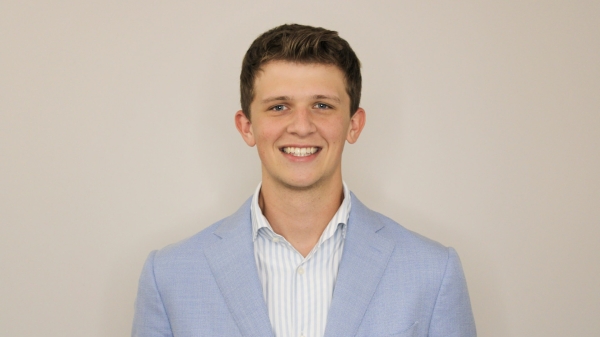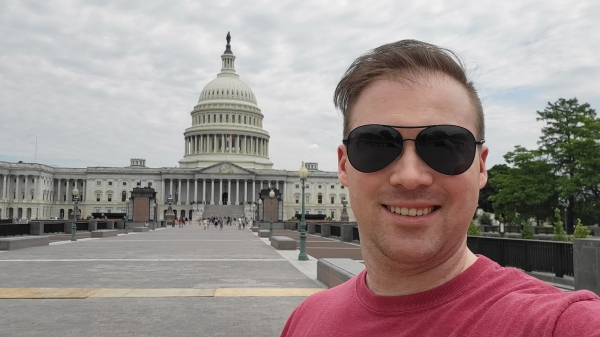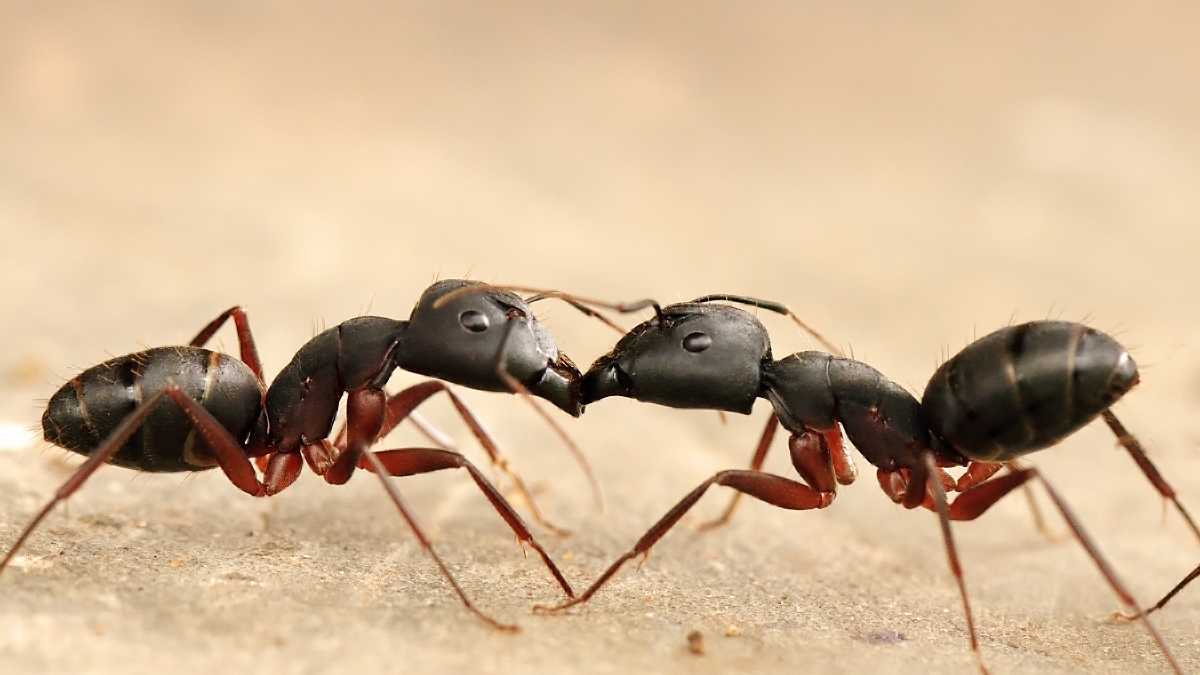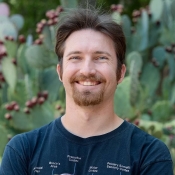While Colin Lynch was enlisted as a medic in the National Guard, he had a pastime that was quite different from that of his peers: He also volunteered as a researcher in a social insect lab at the University of Arizona.
In those two spaces, he was exposed to starkly different social structures: the hierarchical structure of the Army, where one person commands a crew of people, and the communal structure of ant colonies, where decisions are somehow always made as a group. The differences between the two fascinated Lynch to the point where it changed his life trajectory.
“It kind of broke my brain,” he said, “because it was so counter to my intuition. I just had to learn more.”
Lynch initially aimed to become an army veterinarian, but he realized the job he was training for didn’t quite suit him: “l like to think my way through a problem. But in a veterinary clinic, and especially in the Army, you don’t have the opportunity to sit down and think. You have to just act.”
Around the same time, Lynch also joined the Dornhouse Social Insect Lab at the University of Arizona, which studies the complex social systems of insect colonies. There, he realized that there was a much broader range of possibilities for how societies can be structured, and he began to question why different organisms ended up structuring their societies the way they do.
So after fulfilling his enlisted contract, rather than applying to veterinary school or continuing with the Army, Lynch applied to join ASU’s social insect research group to continue doing the work he had become fascinated with. He won a graduate research fellowship from the National Science Foundation to support his work when he started.
Lynch spent much of his PhD studying the collective dynamics of individuals in an ant colony, trying to understand how ants make decisions and work together when there’s no designated “leader.” Lynch used computer models to predict how ants would behave, and then compared the behavior of actual ants.
Additionally, Lynch is working to improve the way that biologists design and conduct their experiments. In science, the most robust results come about through other scientists replicating experiments and seeing the same outcomes. However, many scientific fields are currently undergoing a reproducibility crisis. Lynch works to ameliorate that by taking experimental designs from the field of industrial engineering, a field that Lynch says tackled questions of reproducibility decades ago, and translating them for biology. He is continuing that work as a postdoctoral researcher in the School of Complex Adaptive Systems.
“Not many biologists are interested in these questions, even though I feel like there’s a big need for it," he said. "I’m hoping to carve out a career for myself by designing experiments for biologists.”
Question: Which professor taught you the most important thing while in graduate school?
Answer: One of my advisors is Ted Pavlick ... who is an electrical engineer-turned social insect researcher. One of his favorite lessons is to say that everything is a model. And what he means by that is –– Ted, if you’re reading this, please correct me –– but I think he means that every idea we have about nature is necessarily simpler than what the real thing is. ... There are probably a hundred other things that contribute to a phenomenon that we’re just not considering in our hypotheses because ultimately, we’re finite beings. And imagining these higher-level interactions is more or less impossible for a lot of us, at least for mortals like me. There’s a lesson of humility in that.
Q: What’s the best piece of advice you’d give to those still in graduate school?
A: Graduate school is grueling. I know of no graduate student that has gotten through it unscathed. There were several times in my PhD where I just wanted to quit and say, "Screw it! I’m just going to master out and get out of here." But it was worth it to keep going.
But don’t work at the cost of your own happiness. Have a good work-life balance. Make sure that you go to parties, or you garden, or you read, or you hike, or you do whatever it is that makes you happy. It should be the goal of our lives to be happy. But if you want to think of it in terms of an optimization problem, taking time off will also make you a more efficient worker, because you’re no longer working with an exhausted brain. So take some time to reset, and you’ll do better work.
More Sun Devil community

There's no stopping this global health undergraduate
If the end depends on the beginning, Esha Kubavat has set herself up for success. The Naperville, Illinois-born and Anthem, Arizona-raised undergraduate is graduating in December with a bachelor’s…

Student leader shares journey in finance and campus community
Chase Mathias first realized that the medical field might not be for him during a high school biology class when he passed out while dissecting a pig. Though he dreamed of becoming an…

ASU grad finds purpose in public policy and service
When Bryson Jones took an AP government class back in high school, he found himself fascinated by the machinery of government and how it operates from a business perspective.Now, after an extensive…

